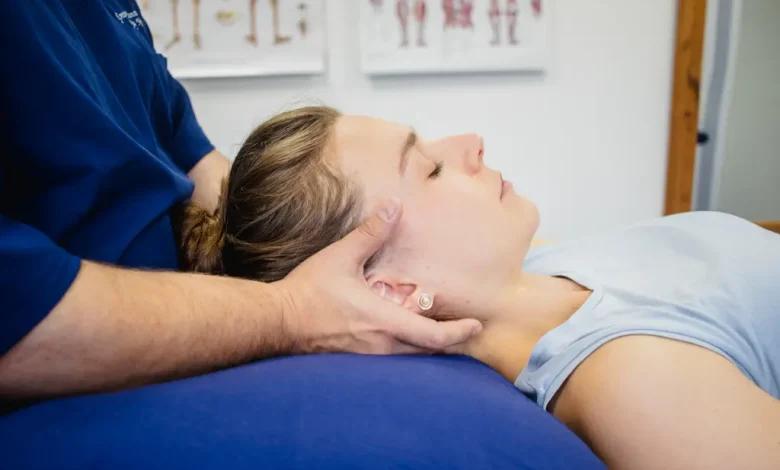The Connection Between Osteopathy and Stress Reduction

Stress is something most of us experience at some point in our lives, and in today’s fast-paced world it has become almost unavoidable. While stress is often thought of as an emotional or mental issue, its effects are deeply physical. Tight muscles, poor posture, headaches, and disrupted sleep are just some of the common symptoms. Osteopathy, a holistic form of treatment that focuses on the relationship between the body’s structure and function, offers an approach that not only addresses physical discomfort but can also play a powerful role in reducing stress levels.
Understanding How Stress Manifests in the Body
Stress is more than a feeling of being overwhelmed. It triggers a physiological response that can affect the entire body. The release of stress hormones such as cortisol and adrenaline leads to increased muscle tension, shallow breathing, and higher blood pressure. Over time, this ongoing strain can create a cycle where physical discomfort feeds into emotional stress, leaving people feeling trapped.
For example, someone working long hours at a desk may notice tension building in their shoulders and neck. This tension can cause headaches or stiffness, which then contributes to poor concentration and rising anxiety. Osteopathy works by breaking this cycle, addressing the physical tension while supporting the body’s natural ability to recover balance.
Osteopathy’s Holistic Approach to Stress
Osteopathy is based on the idea that the body functions as an interconnected whole. Rather than simply treating one area, osteopaths look at how different parts of the body influence each other. This approach is particularly effective when dealing with stress, as it considers both the physical symptoms and their underlying causes.
Through manual techniques such as soft tissue massage, stretching, and gentle manipulation, osteopaths release areas of restriction and tension. This not only improves mobility but also sends signals to the nervous system that promote relaxation. Many patients report feeling calmer and lighter after treatment, a sign that their body has shifted from a state of stress towards recovery.
Reducing Muscle Tension and Pain
One of the most immediate ways osteopathy helps with stress is by reducing muscle tension. Stress often causes people to unconsciously tighten their shoulders, clench their jaw, or adopt rigid postures. Over time, this can lead to persistent pain and discomfort.
Osteopathic treatment focuses on easing these areas of strain, improving blood flow, and restoring normal movement. By releasing muscular tension, patients not only experience less physical pain but also feel a sense of relief that can directly lower stress levels. When the body is no longer held in a constant state of tension, the mind can follow with a calmer outlook.
Supporting the Nervous System
The nervous system is at the heart of the stress response. When someone is under pressure, the sympathetic nervous system – often referred to as the “fight or flight” response – becomes dominant. Osteopathy can help stimulate the parasympathetic nervous system, which is responsible for rest, digestion, and recovery.
Gentle osteopathic techniques encourage the body to shift towards this restorative state. This not only reduces feelings of anxiety but also helps regulate sleep patterns and improves overall wellbeing. Many people notice they sleep better after osteopathic treatment, which in turn plays a crucial role in managing stress.
Improving Breathing and Posture
Stress often leads to shallow, rapid breathing, which can increase feelings of anxiety and fatigue. Poor posture, particularly from sitting at desks or using digital devices, can restrict breathing further, creating a cycle of tension.
Osteopaths work to improve posture by addressing imbalances in the spine, ribcage, and diaphragm. When breathing becomes easier and more natural, the body receives better oxygen flow, and the mind feels calmer. This improvement can have a profound effect on stress levels, giving patients a tool they can carry into their daily lives.
Encouraging Mind-Body Awareness
Another benefit of osteopathy is the way it encourages patients to become more aware of their bodies. During treatment, people often notice how certain areas hold tension or how posture affects their comfort. This awareness can empower individuals to make small changes in their daily routine, such as adjusting their desk setup, taking regular breaks, or practising relaxation exercises.
By learning to listen to their body’s signals, patients are better equipped to prevent stress from building to the point where it becomes overwhelming. Osteopathy, therefore, not only offers treatment but also acts as a form of education in managing long-term wellbeing.
Complementing Other Stress Management Strategies
Stress is a complex issue, and no single treatment provides all the answers. What makes osteopathy valuable is how well it complements other stress management strategies such as mindfulness, exercise, and counselling. While practices like meditation and yoga focus on calming the mind, osteopathy addresses the physical side of stress, ensuring the body is in a state that supports emotional balance.
Many people find that combining osteopathy with lifestyle changes creates a more comprehensive approach to stress relief. By tackling the issue from multiple angles, individuals are more likely to experience lasting improvements in their overall health.
Osteopathy for the Modern Lifestyle
Modern living places unique pressures on the body and mind. Long commutes, office jobs, and constant screen time all contribute to physical strain and higher stress levels. Osteopathy is particularly relevant in this environment, as it offers practical solutions to the challenges of daily life.
For office workers struggling with tension headaches or back pain, osteopathy provides relief that can improve focus and productivity. For parents juggling busy schedules, it offers a way to restore energy and reduce the toll of stress on their health. For anyone feeling the weight of modern demands, osteopathy provides a reminder that caring for the body is an essential part of managing stress.





